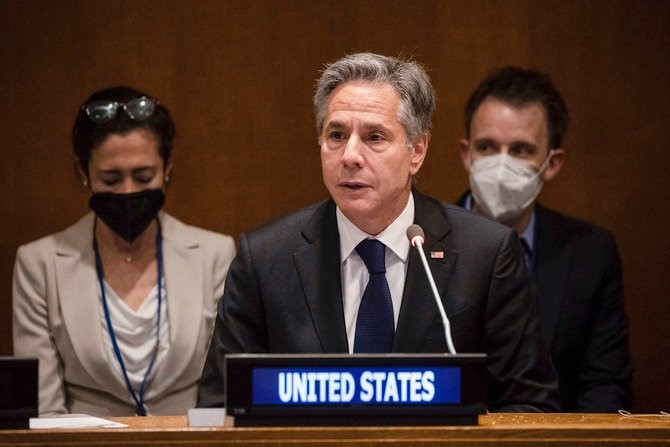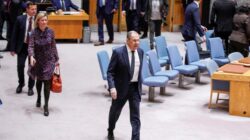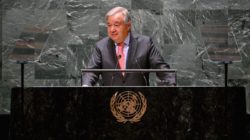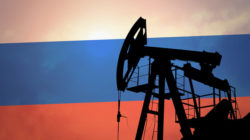NEW YORK — The US remains convinced that a reciprocal return to compliance with the 2015 Iran nuclear deal gives the best chance of “putting Iran’s nuclear program back in a box and averting any kind of crisis,” according to Secretary of State Antony Blinken on Monday.
Blinken made his statements at a news briefing attended by Arab News at the United Nations headquarters in New York, where he led a 60-person group to help kick off high-level nuclear talks later this month.
He stated that the United States had agreed to an EU proposal that was created “after many, many months of discussions, deliberations, and interactions,” but it remains to be seen whether Iran will follow suit.
“We remain ready to proceed on the basis of what has been agreed.” “It’s questionable whether Iran is willing to do that,” Blinken remarked.
His remarks come just after the United States imposed new oil and petrochemical sanctions on Tehran, and they follow allegations by Iran’s atomic energy minister, Mohammad Eslami, that Tehran has the capability to construct a nuclear weapon “but does not want to do so.”
Every five years, state parties to the Treaty on the Non-Proliferation of Nuclear Weapons meet in New York to review the agreement’s operation and implementation of its provisions, which include preventing the spread of nuclear weapons, destroying the existing nuclear arsenal in order to eventually achieve a nuclear weapon-free world, and promoting peaceful uses of nuclear energy.
The summit, according to UN Secretary-General Antonio Guterres, is taking place at a vital juncture for world peace and security, “as mankind risks forgetting the lessons formed in the horrific fires of Hiroshima and Nagasaki.”
Geopolitical tensions are at an all-time high, according to Guterres, as states “seek illusory security by hoarding and spending hundreds of billions of dollars on doomsday weapons that have no place on our earth.”
The last Review conference occurred in 2015, while the current conference was scheduled for 2020 but was postponed due to the epidemic.
With 191 members, including five nuclear weapon states, China, Russia, France, the United States, and the United Kingdom, the NPT is the most comprehensive international arms control agreement. It entered into force in 1970 and has served as a cornerstone of the global non-proliferation system ever since.
The Iran nuclear deal, properly known as the Joint Comprehensive Plan of Action, was reached after the 2015 review meeting, therefore state parties had never before addressed it.
According to Gustavo Zlauvinen, president of the NPT’s 10th Review Conference, the US and other state parties will raise concerns about Iran’s nuclear programs, citing the latest International Atomic Energy Agency report, which revealed “inconsistencies and a host of other issues (that) cast a shadow on (Iran’s nuclear) program and have (raised) questions about whether that program is truly for peaceful purposes or not.”
Zlauvinen believes Iran will defend its nuclear program as harmless.
“Then the question will be how hard the United States and others will press for this issue to be included or not included in any result document.”
“I believe that the more progress we make in the JCPOA talks in Vienna, the lower the level of discussions in the review conference will be,” he added. But if those conversations fail to produce results, there will almost certainly be additional controversy here.”
Jordan’s foreign minister, Ayman Safadi, spoke on behalf of the Arab Group, saying that Arab states value the NPT regime and recognize the IAEA as the only organization with a mandate to verify incidents involving the peaceful use of nuclear material.
He told international ambassadors and ministers that the treaty was based on an agreement in which nuclear states agreed to abolish their nuclear weapons and all other nations agreed to refrain from developing such weapons.
“Nuclear weapon states have failed to comply.” “The Arab community is concerned about that,” Safadi added, encouraging those states to be transparent about their nuclear arsenals.
He advocated for the development of legally binding tools to assure non-nuclear states of international safeguards against the use of nuclear weapons.
Safadi also referred to the obvious prohibition on transferring nuclear technology to states that are not signatories to the treaty, naming Israel as one of four countries that have not joined the agreement, along with Pakistan, India, and South Sudan.
The conclusion of the 1995 Review Conference was the establishment of a nuclear-free zone in the Middle East.
According to Safadi, the “Middle East already has enough problems to deal with (without) any new sort of catastrophe or the advent of nuclear weapons into our nations.”
Jordan is “completely committed to the NPT,” he stressed.
However, Safadi stated that establishing a nuclear-weapons-free Middle East goes hand in hand with resolving all Middle Eastern concerns, including the Palestinian struggle, the Syrian war, the Yemeni crisis, and the tensions in Libya.
Source: Arab News





